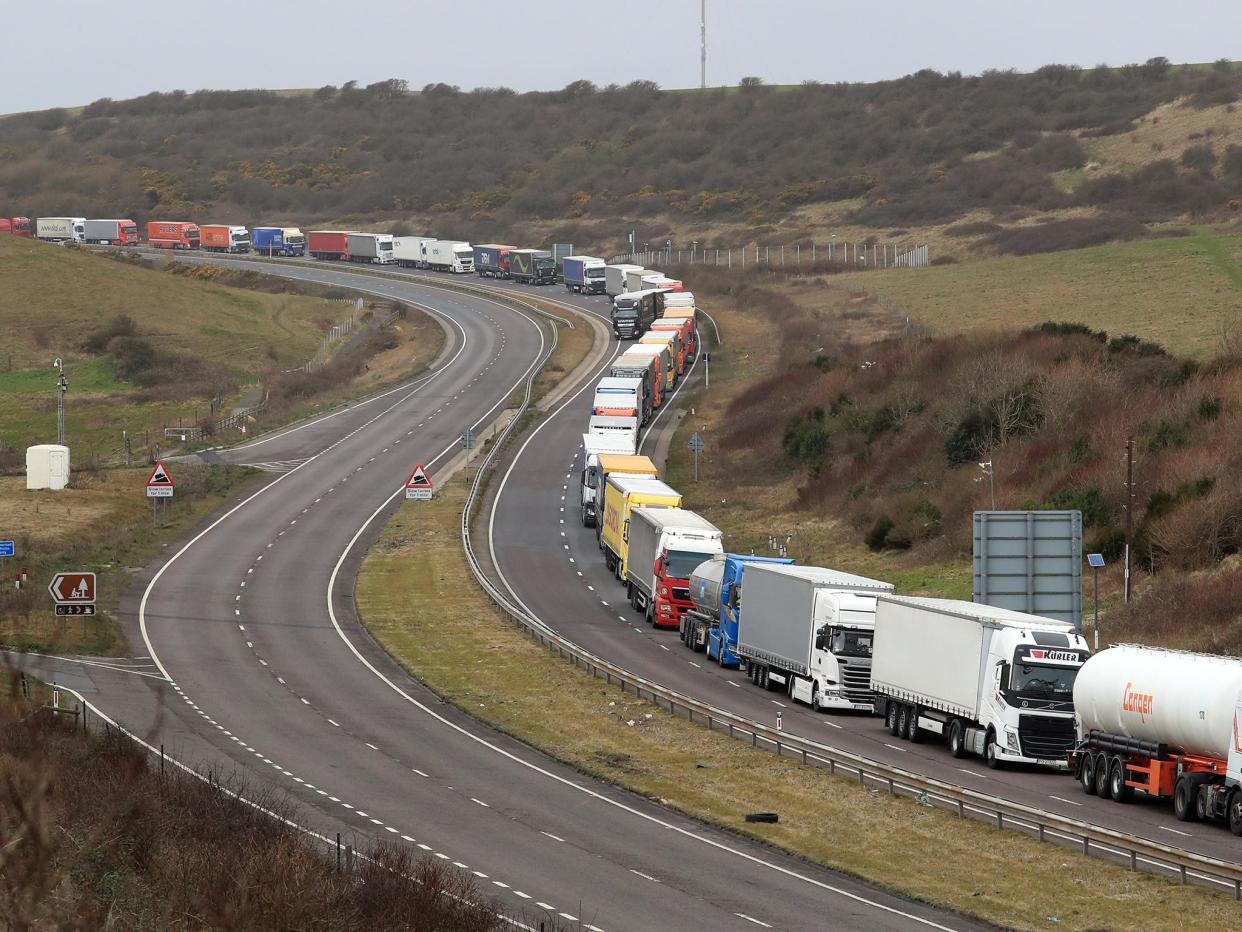‘No time to lose’: Food importers tell Boris Johnson to act to prevent price hikes and shortages from hard Brexit

Concerned food importers have revealed the “mountain of paperwork” they face under Boris Johnson’s hard Brexit, making price hikes and shortages inevitable.
The prime minister has been told there is “no time to lose” to reach an agreement with the EU to prevent the worst possible damage – and to begin expensive preparations at channel ports.
The warning comes after ministers admitted traders will face multiple border checks on almost all goods from January, even if a no-deal Brexit is avoided, with any hopes of “frictionless trade” abandoned.
Now a hard-hitting report from the British Retail Consortium (BRC) has listed no fewer than six documents its members will have to fill in if there is only a skeleton deal after the transition period.
They are: VAT and customs documents; freight forms; health and veterinary paperwork; export health certificates; exit and entry summary declarations; and safety and security permits.
The BRC also said new IT systems must be “created and tested before 1 January 2021” – after Michael Gove warned they would take five years.
“The government must set about to negotiate a zero-tariff agreement that minimises checks and red tape otherwise it will be consumers who suffer as a result,” said Helen Dickinson, its chief executive.
“The introduction of excessive or avoidable checks would mean businesses face a mountain of paperwork to be filled out by an army of newly trained staff, coupled with exhaustive checks on thousands of lorries every day.
“And the result for consumers would be higher costs and reduced availability on the shelves. The government has no time to lose.”
The report comes after Mr Gove finally lifted the lid on the realities of leaving the single market and customs union, after the issue was ducked during the election campaign.
The checks will be the consequence of seeking a loose “Canada-style” agreement, allowing the UK to break free of some EU rules – and a far cry from the pre-referendum promise that Brexit would reduce red tape.
The BRC fears checks will see thousands of vehicles held at Dover, where even a two-minute hold-up would trigger 17-mile tailbacks – and where there is very little space for new infrastructure.
It is calling for: zero tariffs, coordination on VAT and excise procedures, advance information on new checks and “timely construction” of necessary infrastructure at ports.
Almost 80 per cent of the food imported by retailers comes from the EU, the report points out, with 7,000 lorries passing through Dover and Folkestone every day.
However, the government has made it clear it will pursue a deal with “no alignment” – throwing into jeopardy even the EU’s proposal of a no-tariffs, no-quotas agreement.
At the Munich Security Conference on Sunday, the French foreign minister, Jean-Yves le Drian, laid bare the bitter battles ahead, saying: “I think that on trade issues and the mechanism for future relations, which we are going to start on, we are going to rip each other apart.”
Read more
Secret studies on value of post-Brexit trade deals suppressed
Johnson has to put Brexit on the backburner for COP26
Sinn Fein’s election victory is Ireland’s ‘Brexit moment’


